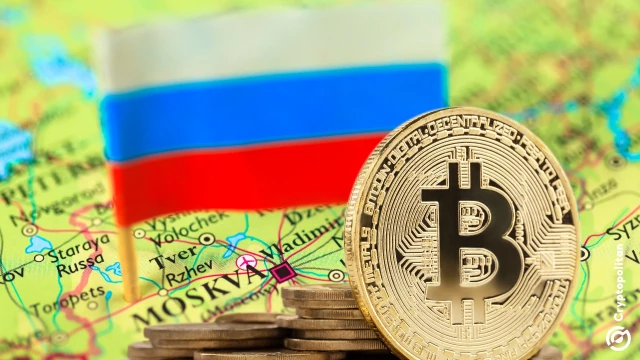
Crypto awareness is high among Russians, ownership is yet to catch up
Cryptopolitangeneral
One out of 10 Russians is open to buying cryptocurrency, according to a new survey, with the majority pointing to its high profitability as the main motive. Other features of decentralized digital money that appeal to potential investors in Russia include crypto holders' independence from banking restrictions and political risks.
📋 Article Summary
Cryptocurrency Adoption on the Rise in Russia: Opportunities and Challenges
As the global cryptocurrency market continues to evolve, Russia has emerged as an intriguing case study for digital asset adoption. A recent survey has revealed that one in 10 Russians is open to purchasing cryptocurrency, signaling a growing interest in the decentralized financial landscape.
The survey findings highlight several key factors driving this trend. Foremost among them is the perceived profitability of cryptocurrencies, which is cited as the primary motive for potential investors. This sentiment aligns with the broader narrative of crypto's potential to generate outsized returns, particularly in an environment of economic uncertainty and market volatility.
Moreover, the survey respondents have also expressed interest in the independence and autonomy offered by decentralized digital assets. In a country with a history of financial and political instability, the ability to hold and transact outside the traditional banking system holds significant appeal. This factor could be particularly relevant for Russian investors seeking to hedge against currency fluctuations or political risks.
Despite this heightened awareness and openness, the actual adoption of cryptocurrency ownership in Russia remains relatively low. This dichotomy between awareness and adoption highlights the multifaceted challenges facing the crypto ecosystem in the country.
One of the primary hurdles is the regulatory landscape. Russia has maintained a somewhat ambiguous and at times restrictive approach to cryptocurrencies, with concerns over money laundering and financial stability often at the forefront. This uncertainty can deter mainstream adoption, as investors and businesses seek clarity and stability in the legal and policy frameworks governing digital assets.
Furthermore, the technological barriers and learning curve associated with cryptocurrency usage may also play a role in the slow uptake. Navigating the complexities of digital wallets, blockchain networks, and trading platforms can be daunting for some, particularly in an environment where financial literacy and digital skills may not be uniformly high.
Looking ahead, the continued growth of cryptocurrency awareness in Russia could pave the way for increased adoption, provided that the regulatory environment becomes more conducive and user-friendly platforms emerge to bridge the gap between interest and action. Additionally, the potential for cryptocurrency to serve as a hedge against macroeconomic and geopolitical risks may further drive its appeal among Russian investors.
However, the path to widespread cryptocurrency adoption in Russia is not without its challenges. Striking a balance between financial stability, regulatory oversight, and technological accessibility will be crucial in unlocking the full potential of digital assets in the country. As the global crypto landscape evolves, Russia's experience may offer valuable insights into the nuances of cryptocurrency adoption in emerging markets.